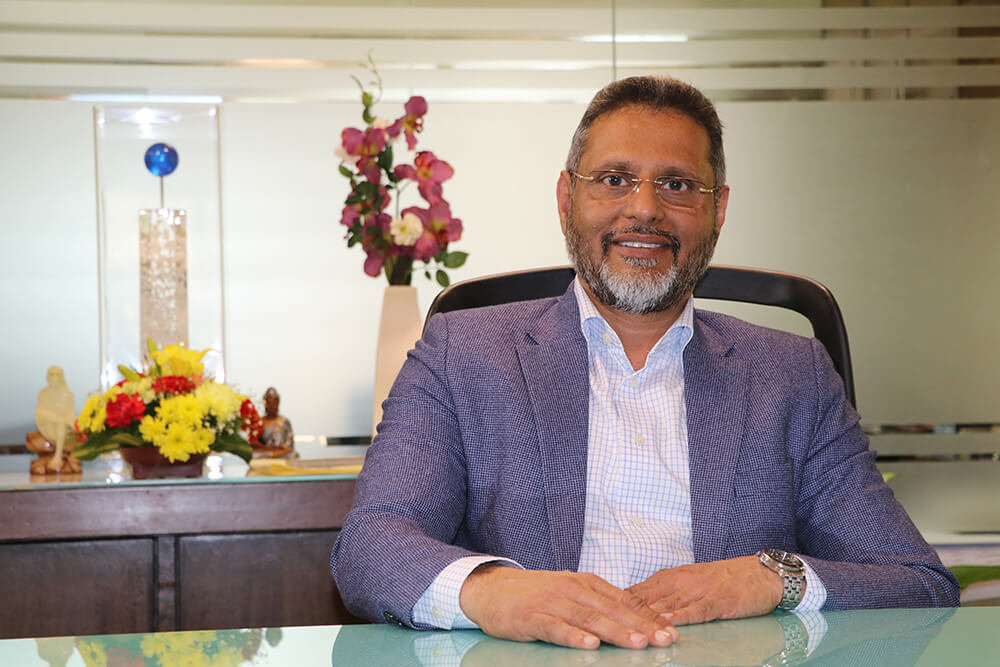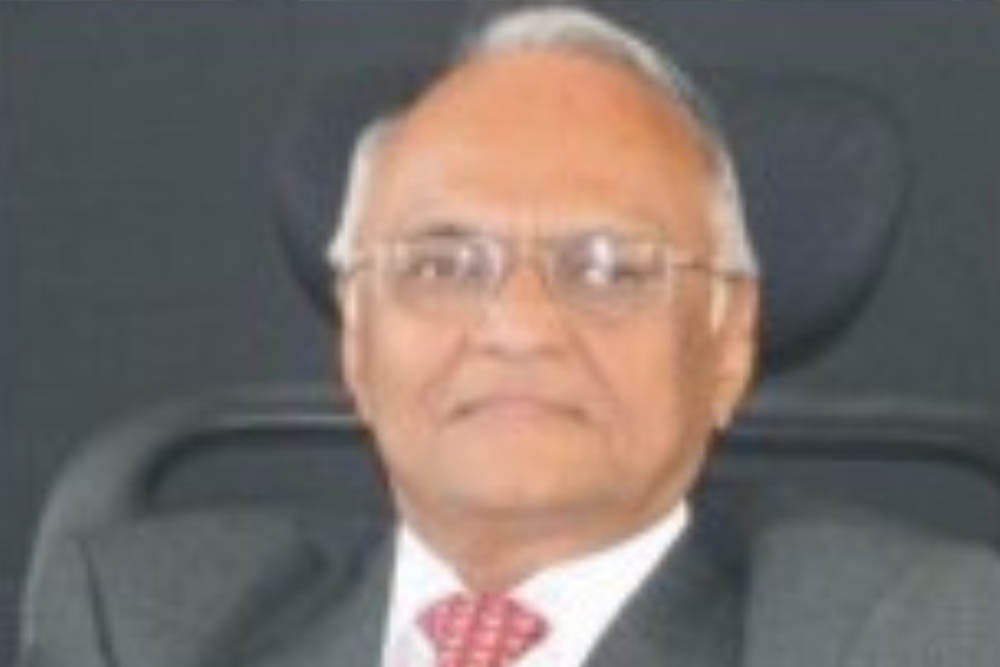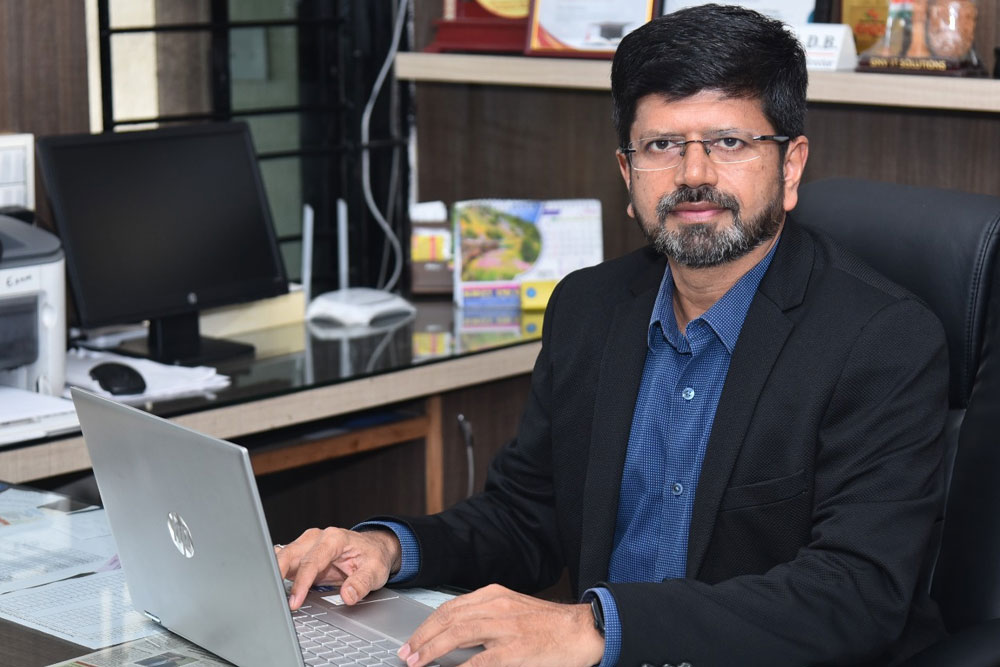 Dr. Chenraj Roychand
Dr. Chenraj Roychand A distinguished Indian educationist, entrepreneur, angel investor and philanthropist with over 40 years of experience...
 Dr. Chenraj Roychand
Dr. Chenraj Roychand  Sri. Achalchand Jain
Sri. Achalchand Jain  Dr. Ganesh D. B.
Dr. Ganesh D. B.  Master of Business Administration (MBA)
Master of Business Administration (MBA)
 Master of Business Administration (MBA) - 120
Master of Business Administration (MBA) - 120
The Department of Information Science and Engineering was established in the year 2022 with an initial intake of 60 students. The department has achieved a milestone by increasing intake to 120 students from the academic year 2023-24. The department boasts well-equipped laboratories that facilitate hands-on learning experiences. Additionally, the Department of Information Science and Engineering has entered into Memorandums of Understanding (MoUs) with various companies, enhancing opportunities for collaboration and practical industry exposure. Students are encouraged to take up interdisciplinary research in various domains of computer science like computer vision, Data Mining, Networking, high performance computing etc.
The Department of Information Science &Engineering, established in the year 2022. The Department has eight faculties with two Doctorates and three pursuing Ph.D. in reputed universities. The department offers an undergraduate program where students delve into core computer aspects, including software, networking, programming, operating systems, web development, and database management. The program also enables students to master advanced topics such as the Internet of Things (IoT), cyber forensics, artificial intelligence, biometric management, and software development. It hosts faculty who are involved in supporting funded research and consultancy projects apart from training the students in academics. The faculty members are actively involved in current areas of information technology in presenting papers at conferences which are widely published in international and national journals and conferences thereby producing research outputs of international standard. Faculty of the department applied many research projects of AICTE,SERB, UGC, VTU. Several patents have been filed by the Department faculty. The faculty members are associated with Professional bodies such as CSI, IAENG,CSTA, and AICTE. The industry relationship helps us frame the course curriculum accordance with industry expectation and standards.
It offers a comprehensive infrastructure to support our academic programs. Our state-of-the-art laboratories provide students with the necessary resources to successfully implement and execute their coursework, ensuring a hands-on learning experience. The department has a student forum, "Innovista" aimed at encouraging and organizing co-curricular activities. This platform provides students with opportunities to enhance their skills beyond the academic realm. These activities play a crucial role in building a robust curriculum that prepares students for the challenges and opportunities in the dynamic field of Information Science & Engineering. Departmental library is a treasure trove of knowledge, housing a diverse collection of books and articles. This invaluable resource serves as a wellspring of information, supplementing classroom teachings and aiding students in their pursuit of knowledge. The department actively conducts various placement activities. These initiatives aim to connect students with opportunities in the industry, fostering a seamless transition from academia to the professional world.

| Degree | Programme | Year | Intake |
|---|---|---|---|
| UG | BE in Information Science & Engineering | 2024-25 | 60 |
| 2023-24 | 120 | ||
| 2022-23 | 60 |
To develop professionally excellent, socially responsible Information Science Engineers and Entrepreneurs through teaching, research and development and cognitive skills with human eminence.
MISSIONM1: To foster the development of accountable and proficient professionals in the field of information science and engineering by emphasizing experiential learning and a solid foundation in the fundamentals.
M2: To infuse research and entrepreneurship through the ongoing creation of innovative solutions via intellectual tools and research-driven education.
M3: To promote social responsibility and ethical conduct, nurturing a culture of integrity, empathy, and sustainable principles by fostering a compassionate global community.
PSO1: Effective Information Management: Ability to design and manage databases, information repositories, and content management systems for ensuring data integrity, accessibility, and usability.
PSO2: Standard Practices: Software Development and Entrepreneurship for Successful Career: Analyze, design and develop data-driven software systems and applications that harness the power of emerging computing technologies for successful career.
PEO1: Professional Developmentand Continuous Learning: Graduates will be employed in the computing profession, demonstrating continuousprofessional development. They will engage in learning, understanding, andapplying new ideas and technologies as the field of information science andengineering evolves.
PEO2: Research, Innovation, andDesign Proficiency: Graduates will achieve proficiency in conducting Research, Innovation, Design, andDevelopment aspects of varying complexities in software and scientific systems.Proficient application of intellectual tools and research-driven education willbe employed to develop and implement creative solutions in the field ofinformation science and engineering.
PEO3: Ethical and Professionalism : Graduates will exhibit high professionalism with ethical and moral values in the working environment. Integration of ethical principles and social responsibility intoprofessional practices will contribute positively to the community,demonstrating a commitment to sustainable and responsible engineering solutions.
1. Engineering knowledge: Apply the knowledge of mathematics, science, engineering fundamentals, and computer science and engineering to the solution of complex engineering problems.
2. Problem analysis: Identify, formulate, review research literature, and analyze complex computer engineering problems reaching substantiated conclusions using first principles of mathematics, natural sciences, and engineering sciences.
3. Design/development of solutions: Design solutions for complex computer engineering problems and design system components or processes that meet the specified needs with appropriate consideration for the public health and safety, and the cultural, societal, and environmental considerations.
4. Conduct investigations of complex problems: Use research-based knowledge and research methods including design of experiments, analysis and interpretation of data, and synthesis of the information to provide valid conclusions.
5. Modern tool usage: Create, select, and apply appropriate techniques, resources, and modern computer engineering and IT tools including prediction and modelling complex computer engineering activities with an understanding of the limitations.
6. The engineer and society: Apply reasoning informed by the contextual knowledge to assess societal, health, safety, legal and cultural issues and the consequent responsibilities relevant to the professional engineering practice.
7. Environment and sustainability: Understand the impact of the professional computer engineering solutions in societal and environmental contexts, and demonstrate the knowledge of, and need for sustainable development.
8. Ethics: Apply ethical principles and commit to professional ethics and responsibilities and norms of the computer engineering practice.
9. Individual and team work: Function effectively as an individual, and as member or leader in diverse teams, and in multidisciplinary settings.
10. Communication: Communicate effectively on complex computer engineering activities with the engineering community and with society at large, such as, being able to comprehend and write effective reports and design documentation, make effective presentations, and give and receive clear instructions.
11. Project management and finance: Demonstrate knowledge and understanding of the computer engineering and management principles and apply these to one’s own work, as a member and leader in a team, to manage projects and in multidisciplinary environments.
12. Life-long learning: Recognize the need for, and have the preparation and ability to engage in independent and life-long learning in the broadest context of technological change.
| Sl No | Document | View |
|---|---|---|
| 1 | Course Outcomes | Click here to view |

Dr. H S SARASWATHI
Professor and HoD,
Department of Information Science and Engineering
Jain Institute of Technology, Davangere
Email: saraswathi@jitd.in
